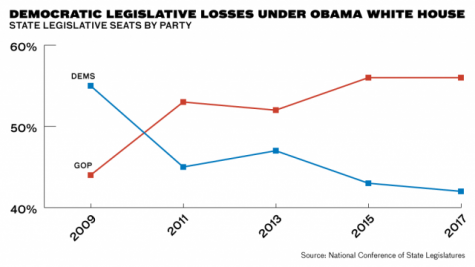I think it would be nice to have a state holiday in March since we don’t have one; my suggestion is one honoring the Lawrence Massachusetts textile strike victory from March 1912 because it was a strike of Italian, French-Canadian (and simply French), various Slav, Hungarian, Portuguese, & Arab (Syrian/Lebanese) workers together in solidarity.
This strike is also known as the Bread and Roses strike. We talked about it on our podcast episode from August 2019 about the history of anarcho-syndicalism in the United States. I summarized the history of that strike using the book The Wobblies: The Story of Syndicalism in the United States (1967, Patrick Renshaw) and I am repeating that summary here with some additions…
In 1912, the Industrial Workers of the World’s focus began to shift with the Lawrence Massachusetts textile mill strike. This nine-week strike coincided with a wave of strike action across the entire English-speaking world of the British Empire, some of which the IWW was actually advising on.
Lawrence had 86,000 residents, 60,000 depending directly on mill wages, and 30,000 men and women working themselves in the mills. Overwhelmingly, the town was either immigrant or first-generation American, representing 25 or more nationalities. A pay cut in the second week of January 1912 also happened as the pioneering Massachusetts minimum wage and maximum hours law for women and children was rolling out. 10 or 15,000 workers walked out immediately, triggering a citywide general strike, although many immigrant groups did not join until later, and the small IWW local wired for emergency help from the national leadership, who arrived quickly on the scene.
A couple of those national advisers/organizers would later be arrested and held without trial for months. One – Italian immigrant, union organizer, poet, and orator Arturo Giovannitti, age 29 – became globally famed for his role in the strike and this imprisonment on false charges by Massachusetts authorities for being too inspiring (allegedly inciting murder through his speeches). His closing arguments in his successful defense on false charges of inciting murder, one of his first public speeches in English, were so passionate – imploring he be allowed to live because he loved being alive – that the trial audience was said to have been reduced to tears. Another famous line: “this mighty army of the working class of the world…which out of the shadows and the darkness of the past is striving towards the destined goal which is the emancipation of human kind, which is the establishment of love & brotherhood & justice for every man and every woman in this earth.” Both of Giovannitti’s co-defendants were also Italian, including the key IWW figure Joseph James Ettor, the multi-lingual first-generation Italian-American, who had helped usher in a new era of IWW focus around Eastern US industrial immigrant workers, including Italian, Polish, and Russian workers among others.
But before Giovannitti’s and Ettor’s arrests in late January, the situation had escalated without much help from radical left rhetoric alone. The Massachusetts militia fired water hoses into the strikers on January 15, a few days in, and the workers became so enraged that they committed to following through on the general strike in progress.
French and Belgian syndicalists were very active in the strike (including their bakery keeping people fed), while the city’s Irish and English communities tended to undermine the strike, especially since the Irish were now in control of city government (some of whom even purchased and planted dynamite to frame IWW leaders unsuccessfully). The Italians were divided with many serving as the core of the strikers but also quite a few siding with management and the city.
An aside: It is critical to remember that Italian unification was only completed by the northern monarchy in 1871 and Italy remained heavily regionally fragmented, with different dialects, politics, and rural vs urban industrial backgrounds. 1880-1900 Italian immigration in particular tended to be from the impoverished former Kingdom of the Two Sicilies in Southern Italy as opposed to industrial northern Italian cities. Not all politically active Italians who came to the US shared the views of the anarchist or communist Italian immigrants. Moreover, as early as the 1890s, large numbers of Italian-Americans had already moved into the public sector roles in places like New York City and Chicago with which they are now “stereotypically” associated. Also many rural Italian immigrants opted to remain in American cities in more transient manual labor jobs and avoided settling down to continue to farm. They were overwhelmingly male and usually did not bring the rest of their families with them during this period (although of course the women working during the prior year’s (1911) Triangle Shirtwaist Factory fire were Italian or Jewish women or girls active in the trade-union movement inside the factory.)
The Massachusetts militia that hosed down and otherwise harassed the picketers consisted largely of anti-immigrant nativists, multi-generation Americans, and young professionals/college students – drawn heavily from Harvard. Supposed anarchists from Boston, possibly actually agents working for management, brought signs with atheist slogans that alienated many workers.
The IWW had to evacuate thousands of starving children to supporter homes across the northeast as the privations grew, but this emergency dispersal of children proved to be such an effective propaganda tool to demonstrate more widely the abusive siege against the workers going without wages that the militias and police began trying to stop the evacuations and arresting mothers on neglect charges. The US Solicitor General condemned the intervention, saying it was any parent’s right to send their child to a home where they would be safer and better fed, and at this point American middle class opinion turned in favor of the strikers despite misgivings about the revolutionary rhetoric and descriptions of syndicalist tactics of sabotage and so on.
Soon there were newspaper editorials across the country raising questions not only about the millowners in Lawrence but about the entire US textile industry which was heavily benefiting from a federal tariff regime.
To avoid a much more serious review of US policy on their industry that could cost them far more money, the American Woolen Company decided to raise wages in 33 cities, then bumped pay for 125,000 millworkers in six states, and soon after a number of other textile companies announced pay rises, overtime pay, and worker protections. The strike ended and a wave of smaller textile strikes across New England quickly ended with similar surrender to worker demands.
Unfortunately, as elsewhere, the IWW was unable to capitalize on a major victory by putting down roots and building infrastructure, and the hard-won gains fizzled away quickly.









